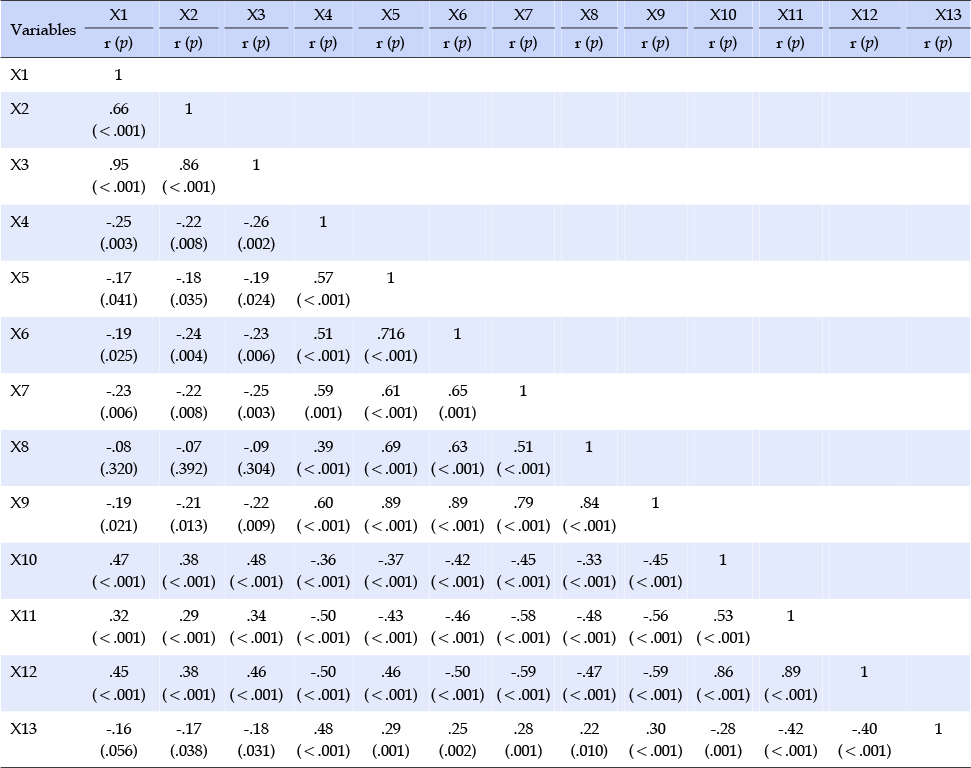1College of Nursing, Institute of Health Sciences, Gyeongsang National University, Korea.
2College of Nursing, Jeju National University, Korea.
3Department of Nursing, Sangji University, Korea.
4Department of Nursing, Konkuk University, Korea.
Copyright © 2017 Korean Academy of Nursing Administration
This is an open access article distributed under the terms of the Creative Commons Attribution Non-Commercial License (http://creativecommons.org/licenses/by-nc/3.0/), which permits unrestricted non-commercial use, distribution, and reproduction in any medium, provided the original work is properly cited.
This research was supported by the 2017 scientific promotion program funded by Jeju National University .

χ1=Compensation discrimination; χ2=Training discrimination; χ3=Gender discrimination; χ4=Person-organization fit; χ5=Emotional bond; χ6=Royalty; χ7=Contribution; χ8=Respect to professionalism; χ9=Organization leader-member exchange; χ10=Structural plateau; χ11=Content plateau; χ12=Career plateau; χ13=Retention intention.

*Missing data excluded.
χ1=Compensation discrimination; χ2=Training discrimination; χ3=Gender discrimination; χ4=Person-organization fit; χ5=Emotional bond; χ6=Royalty; χ7=Contribution; χ8=Respect to professionalism; χ9=Organization leader-member exchange; χ10=Structural plateau; χ11=Content plateau; χ12=Career plateau; χ13=Retention intention.
*Reference group; Marital state (married=1), Employment career (3~5 yr=1).
*Missing data excluded.
χ1=Compensation discrimination; χ2=Training discrimination; χ3=Gender discrimination; χ4=Person-organization fit; χ5=Emotional bond; χ6=Royalty; χ7=Contribution; χ8=Respect to professionalism; χ9=Organization leader-member exchange; χ10=Structural plateau; χ11=Content plateau; χ12=Career plateau; χ13=Retention intention.
*Reference group; Marital state (married=1), Employment career (3~5 yr=1).